Physical Education
The Physical Education (PE) Department aims to develop the physical, social, and emotional aspects of every student through a diverse range of physical activities and programmes. The curriculum equips students with the skills, knowledge, and positive attitudes necessary for a lifelong, active, and healthy lifestyle.
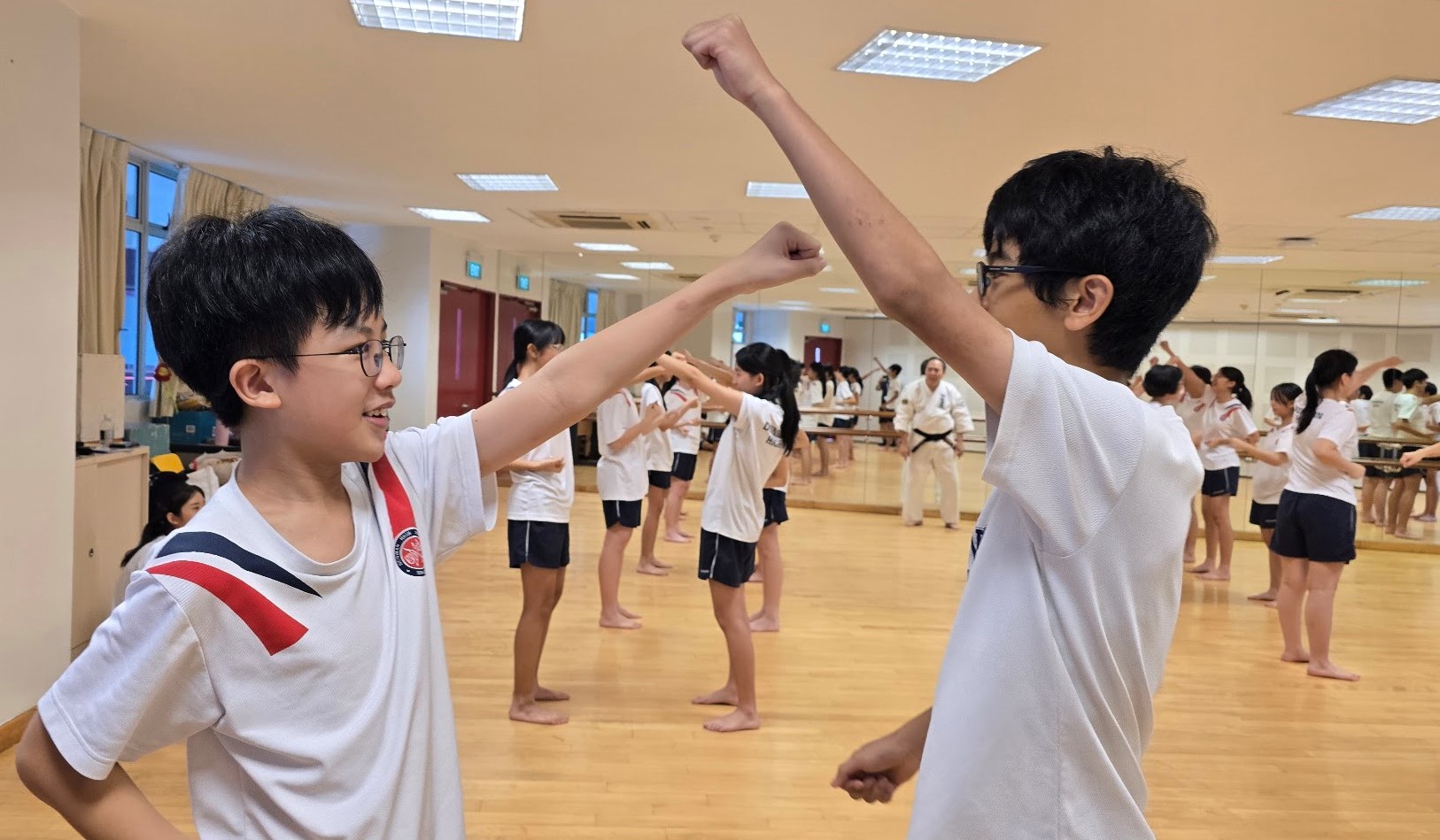
Students are provided opportunities to enjoy and appreciate a wide variety of sports and games, experience success in both team and individual settings, assess their personal fitness, and design fitness programmes related to total wellness. Our PE lessons emphasise fair play, teamwork, sportsmanship, and safe practices during physical activity — all of which nurture Confident Persons, Self-Directed Learners, Active Contributors, and Concerned Citizens, which encompasses three interconnected pillars: Learning Content, Learning Delivery, and Learning Assessment.
Curriculum
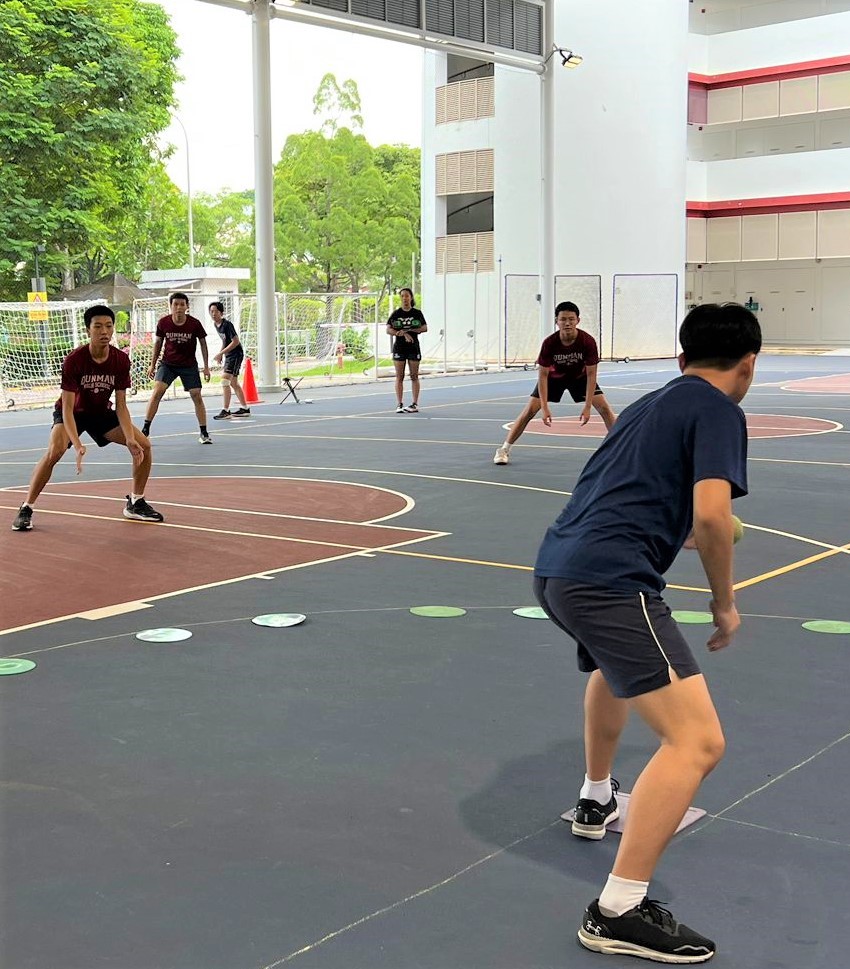
Anchored in the Five Goals of PE
Our curriculum addresses the five national goals:
-
Movement Competence: Students master fundamental and sport-specific skills across diverse physical activities.
-
Healthy Lifestyle Practices: Knowledge and habits around nutrition, training, sleep, and self-care are nurtured.
-
Safety Mindset: Risk assessment, CPR/AED, and safe equipment use are taught and practised.
-
Core Values: Fair play, resilience, integrity, respect, and responsibility are instilled.
-
Enjoyment: Students discover joy through physical movement, camaraderie, and active engagement.
Three Learning Dimensions in Action are used in the curriculum:
-
Learning in Movement: Skill development in sports like Volleyball, Netball, Softball, Floorball, etc.
-
Learning about Movement: Health and fitness concepts taught via the Student Learning Space (SLS).
-
Learning through Movement: Fostering values, collaboration, and reflective learning via gameplay.
Content
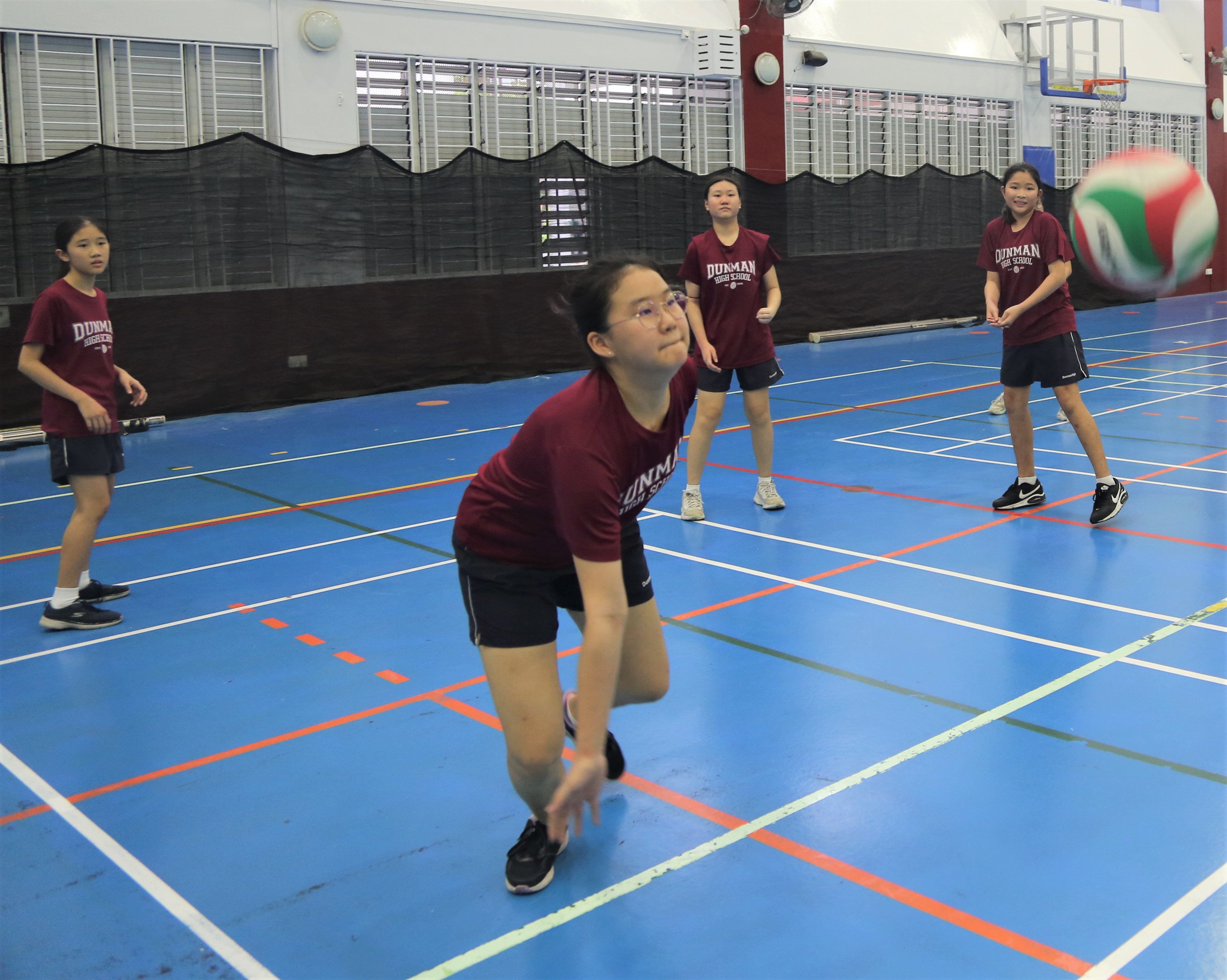
By the end of the 6-year programme, students will:
-
Enjoy and appreciate a wide variety of sports and games
-
Participate in at least one team and one individual sport (See table below)
-
Assess personal fitness and design a fitness plan related to total wellness
-
Demonstrate fair play, teamwork, and sportsmanship
-
Practise safe physical activity habits
|
Games Category |
|||||
|
Type |
Territorial-invasion games |
Striking-Fielding games |
Net-barrier games |
Others |
Disability Sports Experience |
|
Individual |
- |
- |
|
Others |
Boccia |
|
Team |
|
Baseball5 Cricket Softball |
Sepak Takraw Volleyball Tchoukball |
- |
Goalball |
Delivery
Joy of Learning, Lifelong Participation
Our PE programme inspires lifelong passion for health and wellness through:
-
A student-centered, values-driven curriculum
-
Thoughtful integration of technology and authentic experiences
-
Continuous growth across physical, emotional, and social domain
Culminating Activities Across Levels

To deepen learning and translate it into action, students participate in progressive culminating tasks designed to apply their knowledge in authentic contexts:
Junior High
-
A 3D2N outdoor cohort camp (Year 1) develops resilience, initiative, and collaborative skills in dynamic settings.
-
Personal exercise planning (Year 2) encourages goal-setting, self-monitoring, and personal responsibility in health.
-
A 4D3N outdoor adventure camp (Year 3) provides space for leadership and adaptive decision-making in real-world scenarios.
-
In Year 4 students design a two-month training programme targeting cardiovascular endurance, muscular strength, or muscular endurance — applying the Principles of Training and FITT Principle in a purposeful, personalised way.
-
Participation in at least three recreational competitions during their junior high journey fosters strategic thinking, camaraderie, and perseverance.
Senior High
-
Completion of a personal or peer-directed wellness plan, positioning students as active role models in their communities.
-
Engagement in at least one recreational competition, demonstrating confidence, initiative, and ownership of personal growth.
Junior High: Inter-Class Games, Sports Day & Sports Education Programme
Our key events serve as more than just sporting competitions — they are authentic platforms where students develop character, build relationships, and grow as leaders:
In Year 4, the Baseball5 Inter-class Game forms a major feature of the PE programme. More than just a game, it’s a structured experience where students assume purposeful roles such as umpire, fielder, or team strategist. Peer-led analysis, ICT tools like Baseball 9, and reflective practice enhance decision-making, ownership, and teamwork in every game.
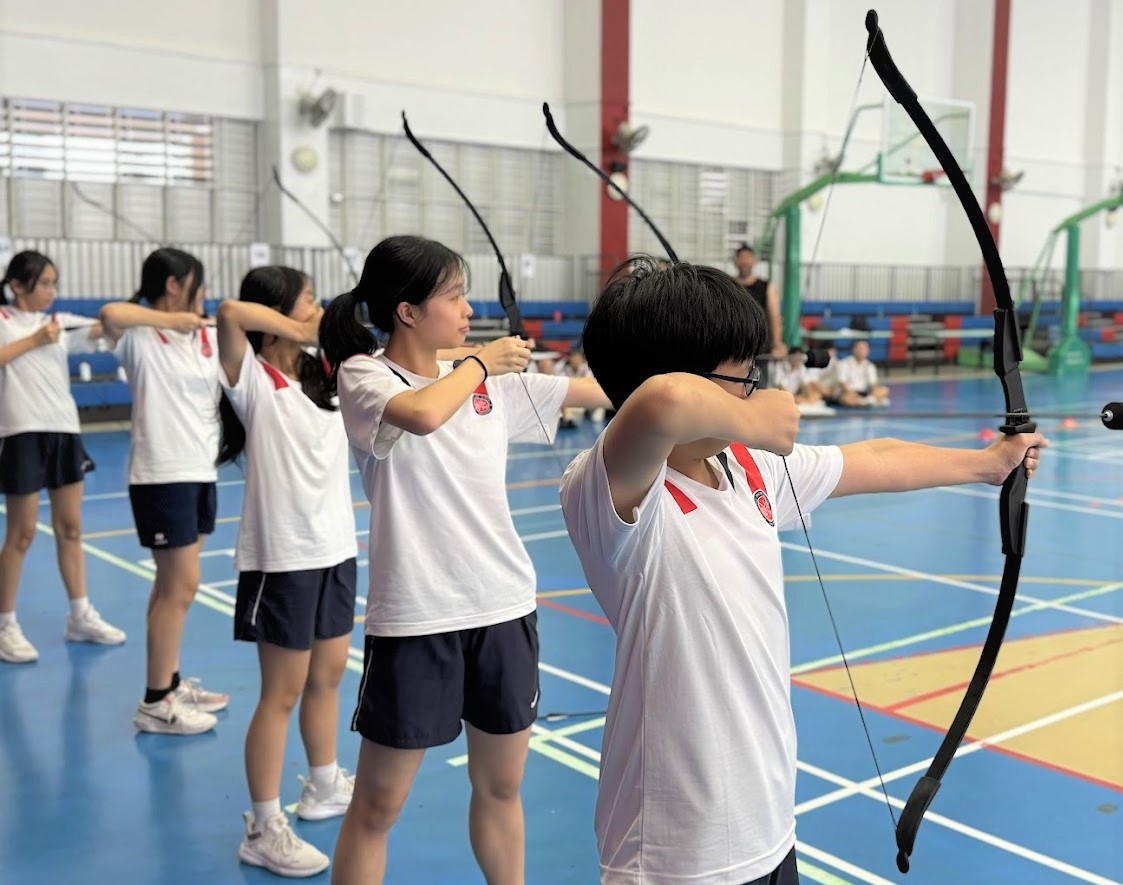
As part of our Sports Education Programme (managed by SportSG and MOE), Year 2 students participate in Post-Exam Activities that introduce them to non-curricular sports, extending learning beyond the classroom. Activities such as Karate and Archery Tag offer engaging and character-rich experiences.
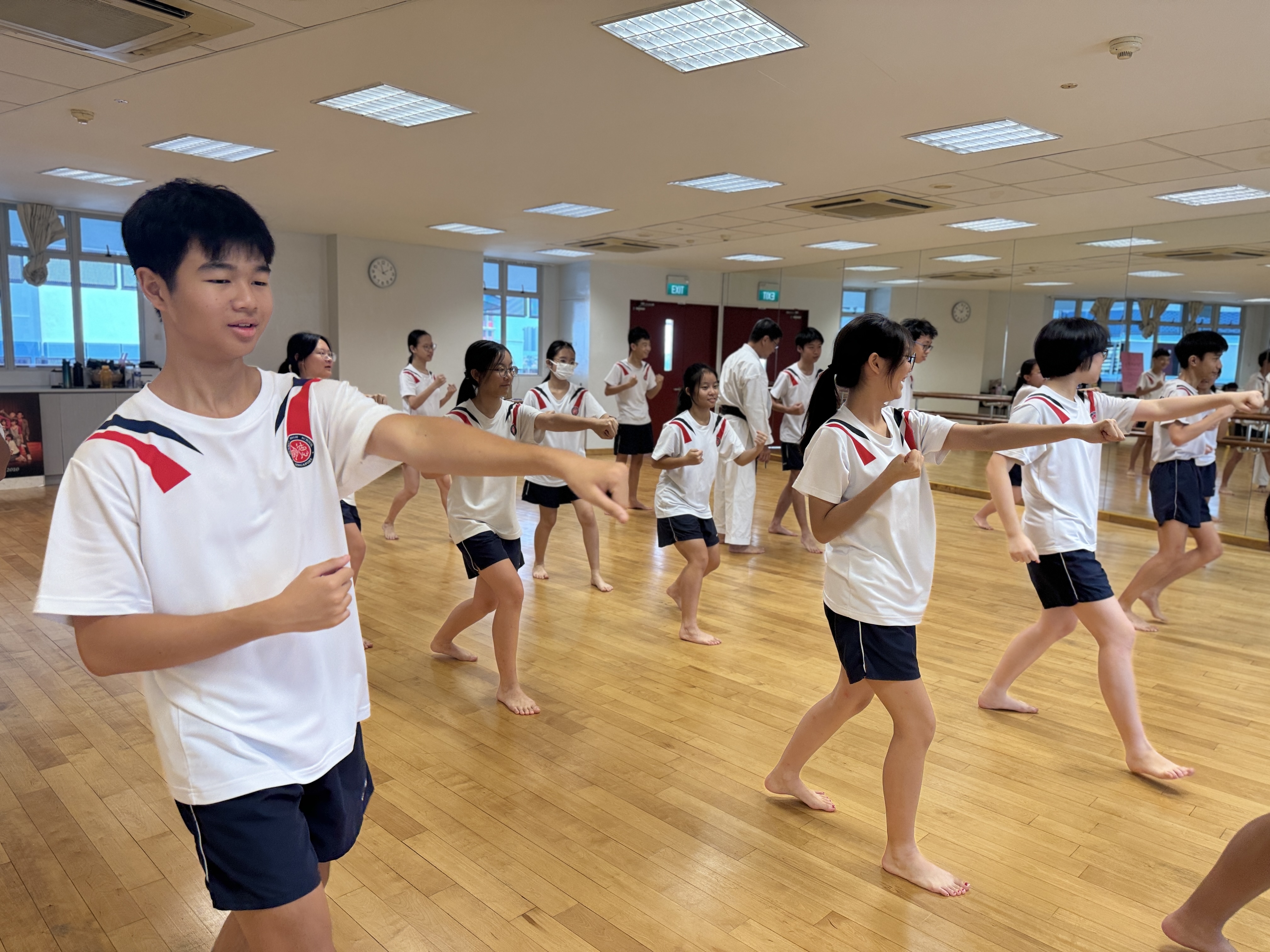
Through these authentic and immersive experiences, students grow into individuals who embody what it means to care, serve, and lead — bringing the school’s vision to life through action.
Senior High: D’Carnival Sports Event
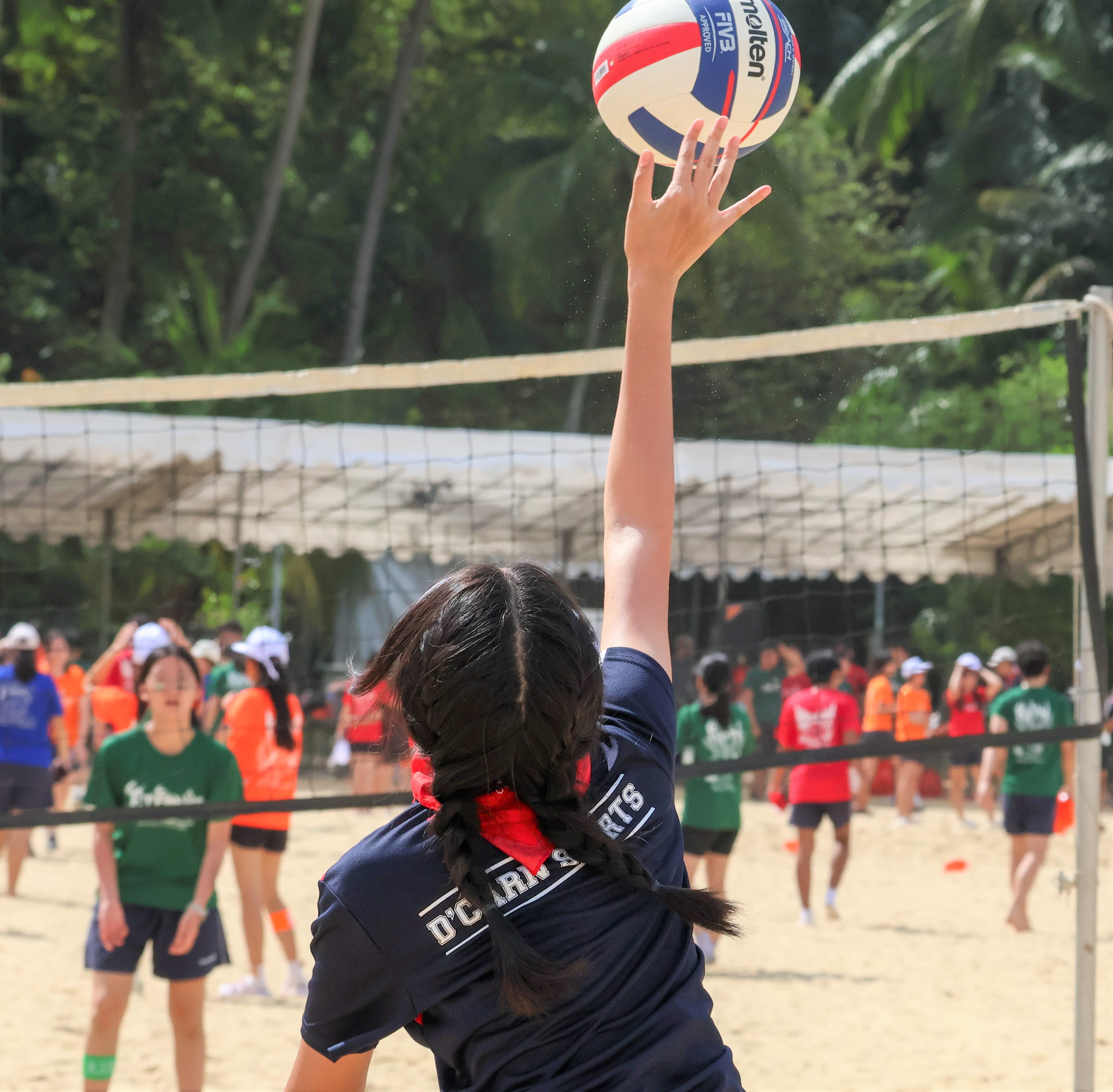
These opportunities are intentionally designed to stretch students in ways that go beyond skill execution — nurturing habits of mind, strength of character, and the joy of purposeful physical engagement.
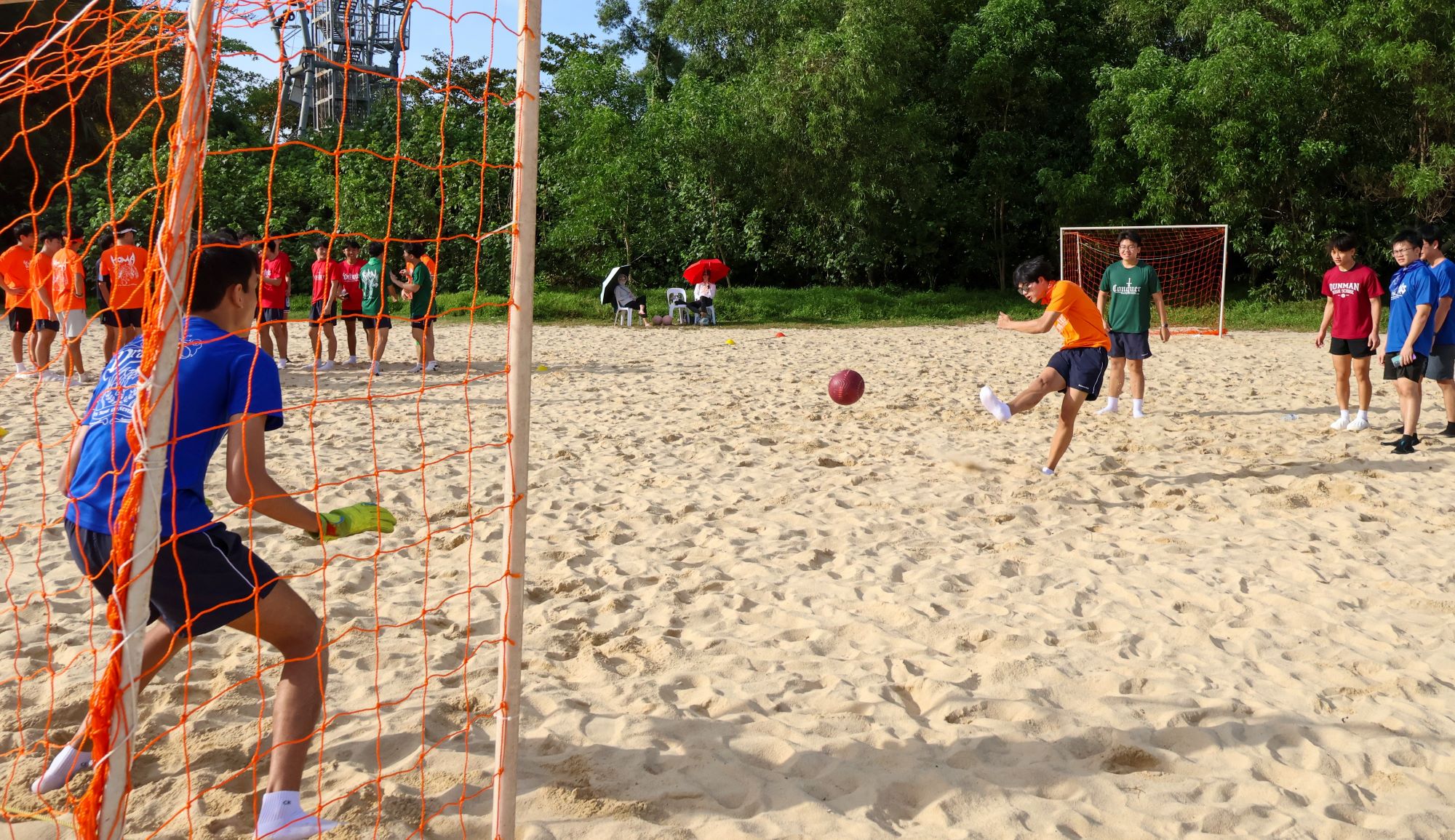
Assessment
The PE department adopts a wide range of assessment modes to ensure that students not only learn but grow holistically, in different modes and physical domains, such as:
|
Physical |
Students are assessed on how they do in the National Physical Fitness Award (NAPFA) |
|
Digital |
Through the use of Student Learning Space (SLS), students’ conceptual understanding of Sports Science are assessed through their reflections and interactive quizzes. |
|
Collaborative |
By use of peer feedback, group planning, and reflective journaling, students learn and are then assessed on their self-awareness and team dynamics. |

